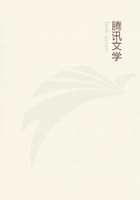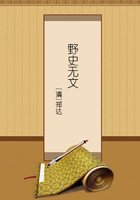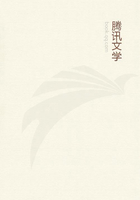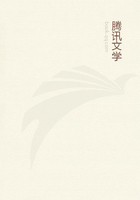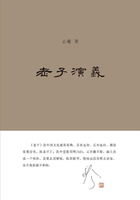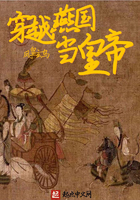Forever in the neighbourhood of an inevitable Death, man can forget that he is born to die; of his Life, which, strictly meditated, contains in it an Immensity and an Eternity, he can conceive lightly, as of a simple implement wherewith to do day-labour and earn wages. So cunningly does Nature, the mother of all highest Art, which only apes her from afar, 'body forth the Finite from the Infinite'; and guide man safe on his wondrous path, not more by endowing him with vision, than, at the right place, with blindness! Under all her works, chiefly under her noblest work, Life, lies a basis of Darkness, which she benignantly conceals; in Life too, the roots and inward circulations which stretch down fearfully to the regions of Death and Night, shall not hint of their existence, and only the fair stem with its leaves and flowers, shone on by the fair sun, shall disclose itself, and joyfully grow.
However, without venturing into the abstruse, or too eagerly asking Why and How, in things where our answer must needs prove, in great part, an echo of the question, let us be content to remark farther, in the merely historical way, how that Aphorism of the bodily Physician holds good in quite other departments. Of the Soul, with her activities, we shall find it no less true than of the Body: nay, cry the Spiritualists, is not that very division of the unity, Man, into a dualism of Soul and Body, itself the symptom of disease;as, perhaps, your frightful theory of Materialism, of his being but a Body, and therefore, at least, once more a unity, may be the paroxysm which was critical, and the beginning of cure! But omitting this, we observe, with confidence enough, that the truly strong mind, view it as Intellect, as Morality, or under any other aspect, is nowise the mind acquainted with its strength;that here as before the sign of health is Unconsciousness. In our inward, as in our outward world, what is mechanical lies open to us: not what is dynamical and has vitality. Of our Thinking, we might say, it is but the mere upper surface that we shape into articulate Thoughts; - underneath the region of argument and conscious discourse, lies the region of meditation; here, in its quiet mysterious depths, dwells what vital force is in us; here, if aught is to be created, and not merely manufactured and communicated, must the work go on. Manufacture is intelligible, but trivial: Creation is great, and cannot be understood. Thus if the Debater and Demonstrator, whom we may rank as the lowest of true thinkers, knows what he has done, and how he did it, the Artist, whom we rank as the highest, knows not; must speak of Inspiration, and in one or the other dialect, call his work the gift of a divinity.
But on the whole, 'genius is ever a secret to itself'; of this old truth we have, on all sides, daily evidence. The Shakspeare takes no airs for writing Hamlet and the Tempest, understands not that it is anything surprising: Milton, again, is more conscious of his faculty, which accordingly is an inferior one. On the other hand, what cackling and strutting must we not often hear and see, when, in some shape of academical prolusion, maiden speech, review article, this or the other well-fledged goose has produced its goose-egg, of quite measurable value, were it the pink of its whole kind; and wonders why all mortals do not wonder!
Foolish enough, too, was the College Tutor's surprise at Walter Shandy:
how, though unread in Aristotle, he could nevertheless argue; and not knowing the name of any dialectic tool, handled them all to perfection. Is it the skilfulest anatomist that cuts the best figure at Sadler's Wells? or does the boxer hit better for knowing that he has a flexor longus and a flexor brevis?
But indeed, as in the higher case of the Poet, so here in that of the Speaker and Inquirer, the true force is an unconscious one. The healthy Understanding, we should say, is not the Logical, argumentative, but the Intuitive; for the end of Understanding is not to prove and find reasons, but to know and believe.
Of logic, and its limits, and uses and abuses, there were much to be said and examined; one fact, however, which chiefly concerns us here, has long been familiar: that the man of logic and the man of insight; the Reasoner and the Discoverer, or even Knower, are quite separable, - indeed, for most part, quite separate characters. In practical matters, for example, has it not become almost proverbial that the man of logic cannot prosper? This is he whom business-people call Systematic and Theoriser and Word-monger; his vital intellectual force lies dormant or extinct, his whole force is mechanical, conscious: of such a one it is foreseen that, when once confronted with the infinite complexities of the real world, his little compact theorem of the world will be found wanting; that unless he can throw it overboard and become a new creature, he will necessarily founder. Nay, in mere Speculation itself, the most ineffectual of all characters, generally speaking, is your dialectic man-at-arms; were he armed cap-a-pie in syllogistic mail of proof, and perfect master of logic-fence, how little does it avail him! Consider the old Schoolmen, and their pilgrimage towards Truth: the faithfulest endeavour, incessant unwearied motion, often great natural vigour: only no progress:

